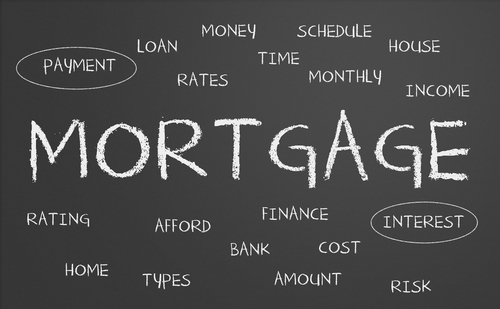Important Tips for Negotiating your Mortgage Rate
Buying your first house can be exciting, but taking out a mortgage isn’t a decision to make lightly. You’ll be making monthly payments for an extended period of time – probably decades – and you also need to factor in interest rates and closing costs. In order to make sure you get the best possible deal, you need to do your research and negotiate your mortgage rate rather than just taking the first rate the bank offers you. Here are some tips to help you make smart choices when preparing to take out a mortgage.
Check your credit. First things first: before you even start shopping around for mortgage rates, get a credit report from the 3 major credit bureaus: Equifax, Experian, and TransUnion. You do not need to contact them individually; you can simply go to annualcreditreport.com or mail in their Annual Credit Report Request Form. Carefully review your credit reports—there’s a lot of information on them and it’s possible that there could be mistakes that would affect your mortgage rate. If you do find any errors, you will need to submit a dispute letter to the credit reporting company that made the error. They will investigate the claim and fix the error if you are in the right.
If your credit isn’t stellar, you may want to spend more time building good credit before taking out a mortgage. Make sure that you’re paying bills and existing loans on time and have enough money saved up that you can realistically afford your mortgage. Banks usually want to see that you can put down 20% for your mortgage, otherwise you may be labeled as “risky” and have to take out expensive private mortgage insurance.
Get multiple quotes. As with just about any kind of smart shopping, comparing costs is key when you’re negotiating your mortgage rate. If you just go to the nearest bank and tell them you want to take out a mortgage, you’re going to be at a distinct disadvantage because you don’t know the mortgage rates of any other banks in town and you have nothing to negotiate with. If a bank knows that you’ve been looking at taking out a mortgage with another bank, they’re more likely to negotiate with you and reduce or waive some of their own fees. Show banks that you’re making an informed decision in order to get the best deal.
Shop around for insurance. Many lenders also recommend that you take out homeowner’s insurance and title insurance. With some banks, it’s not even a recommendation—they’ll require that you meet their “minimum insurance requirements” before they’ll let you take out a loan. If that’s the case for you, make sure that you compare prices between different insurance companies, just as you compared mortgage rates between banks. You won’t be taking out insurance through the bank, and you don’t have to go with the bank’s recommendation for your insurance company. Make the extra effort to research insurance rates yourself.
Pay attention to every fee. Your lender is going to present you with a mortgage rate, but make sure you find out exactly how they came up with that number. If you’re not familiar with mortgage terminology, you can check out an online mortgage dictionary to help familiarize yourself with all the different fees and what they entail. Many fees—such as administration, document preparation, application, and loan processing fees—can be reduced or even waived if you just talk to your lender about them.
Negotiate closing costs. Closing costs, including the fees described above, can end up driving up your actual interest rate on your mortgage. In order to get the best deal in the long run, negotiating closing costs might be the most important part of taking out a mortgage. In addition to broker and lender fees, you can expect third party and government fees as part of your closing costs. These may include the insurance described above, flood certification, recording fees, appraisals, attorney fees, and taxes. Some of these can be reduced or waived while others cannot, depending on your lender. That’s why it’s important that you shop around and talk to your lender to find out what exactly you can cut out.
Negotiating your mortgage rate doesn’t have to be an intimidating experience if you educate yourself about the process and comparison shop for different rates ahead of time. You want to have a good experience buying a home, and getting a reasonable mortgage rate is the first important step.
Category: Mortgage







